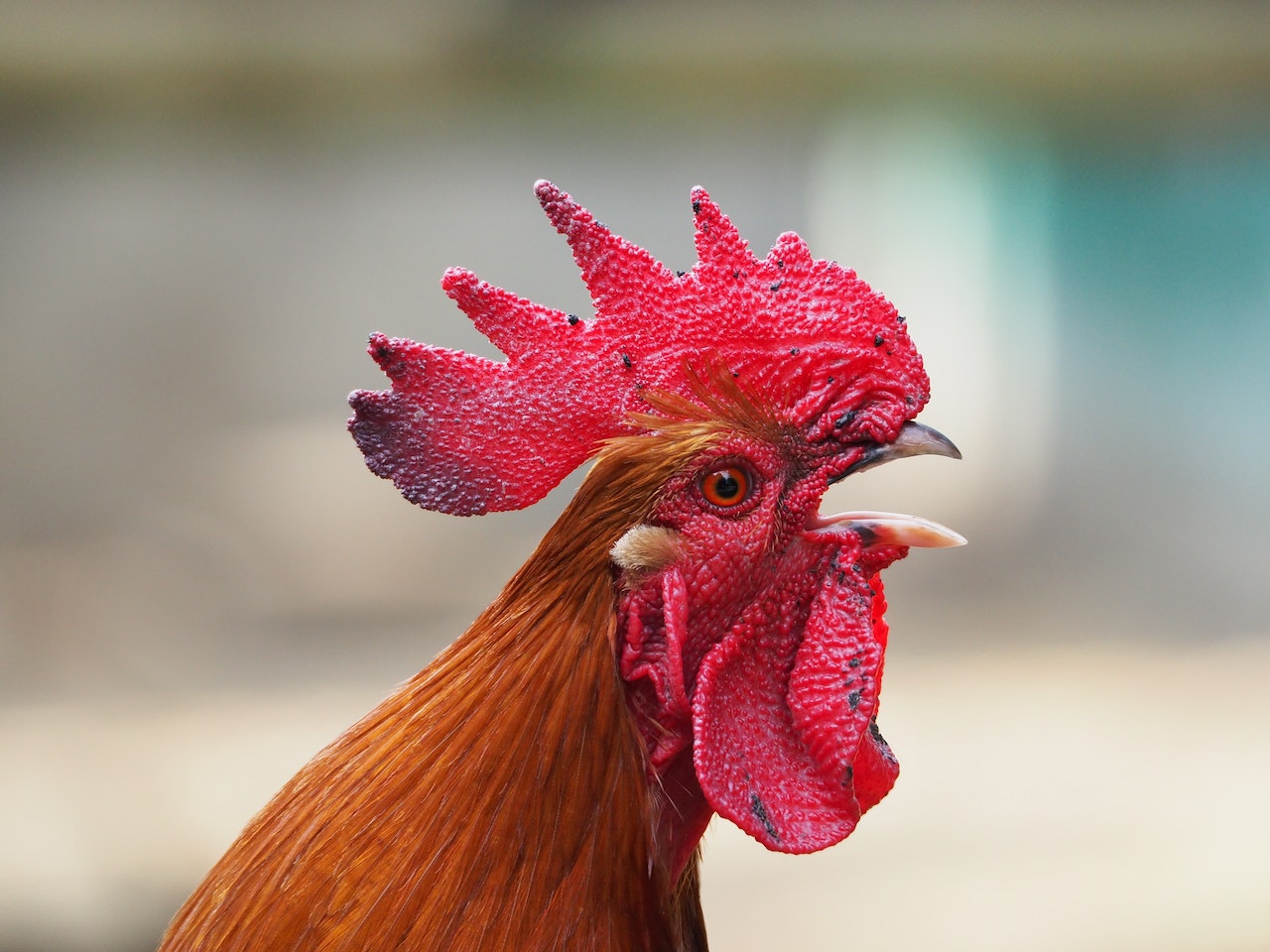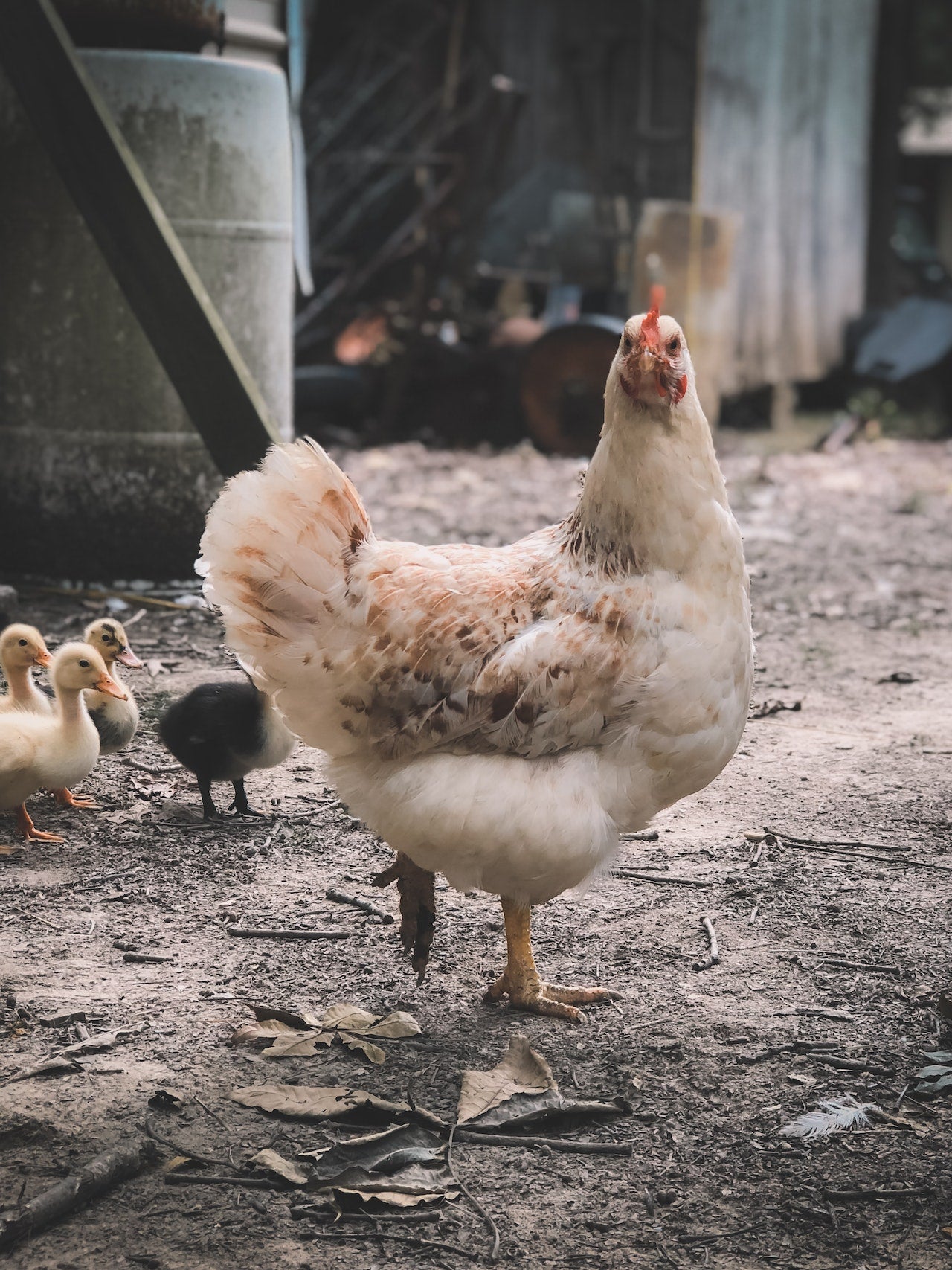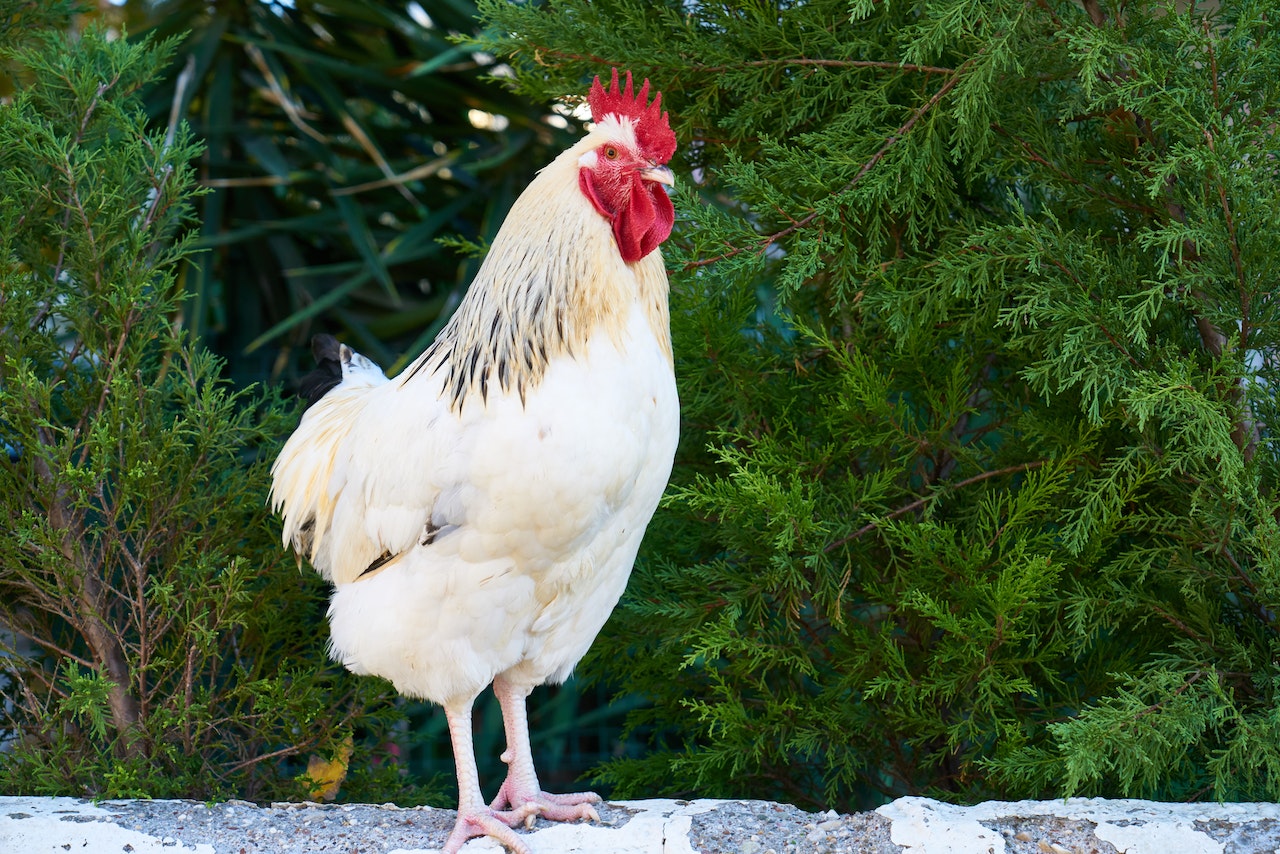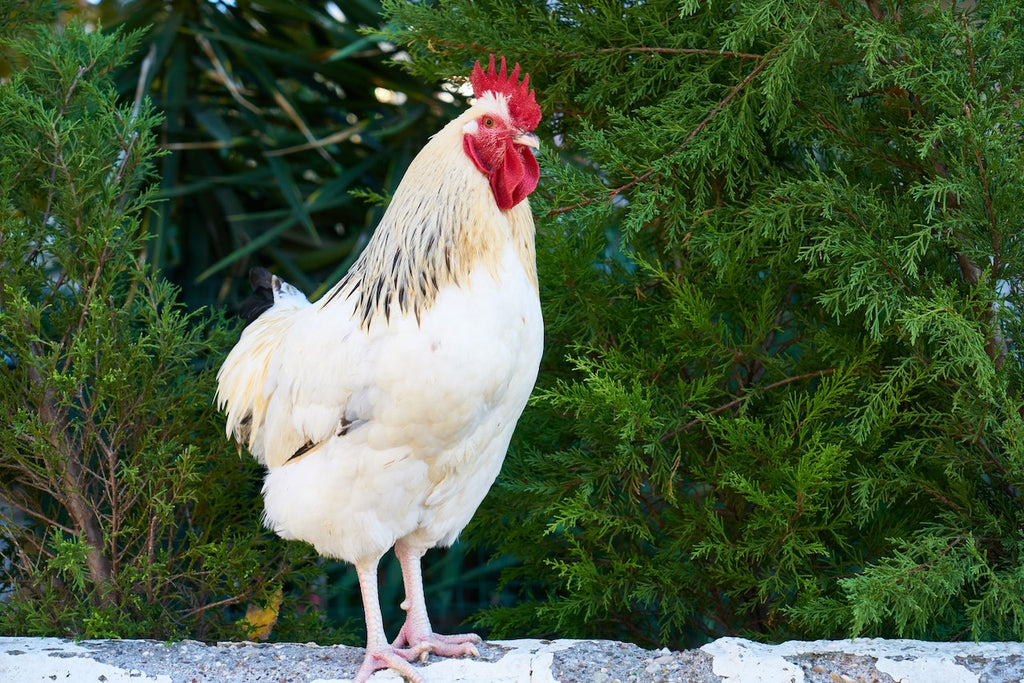
While it is true that chickens have a diverse diet and can consume a wide range of foods, it's important to exercise caution and provide them with a balanced diet for optimal health. While chickens are omnivorous and can eat many things, including fruits, vegetables, grains, insects, and small amounts of meat, there are still certain foods that should be avoided or fed in moderation.
But, Can chickens eat peaches?
Can chickens eat peaches?
Yes, chickens can eat peaches. Peaches are safe and healthy for chickens to consume in moderate amounts. Peaches are a good source of vitamins A and C, as well as dietary fiber. However, it's important to remember that peaches should be given to chickens in moderation as part of a balanced diet. Too much fruit, including peaches, can disrupt the nutritional balance and potentially lead to digestive issues. It's always a good idea to introduce new foods gradually and observe how your chickens respond to them. Additionally, make sure the peaches are fresh and not rotten or moldy, as spoiled fruit can be harmful to chickens.
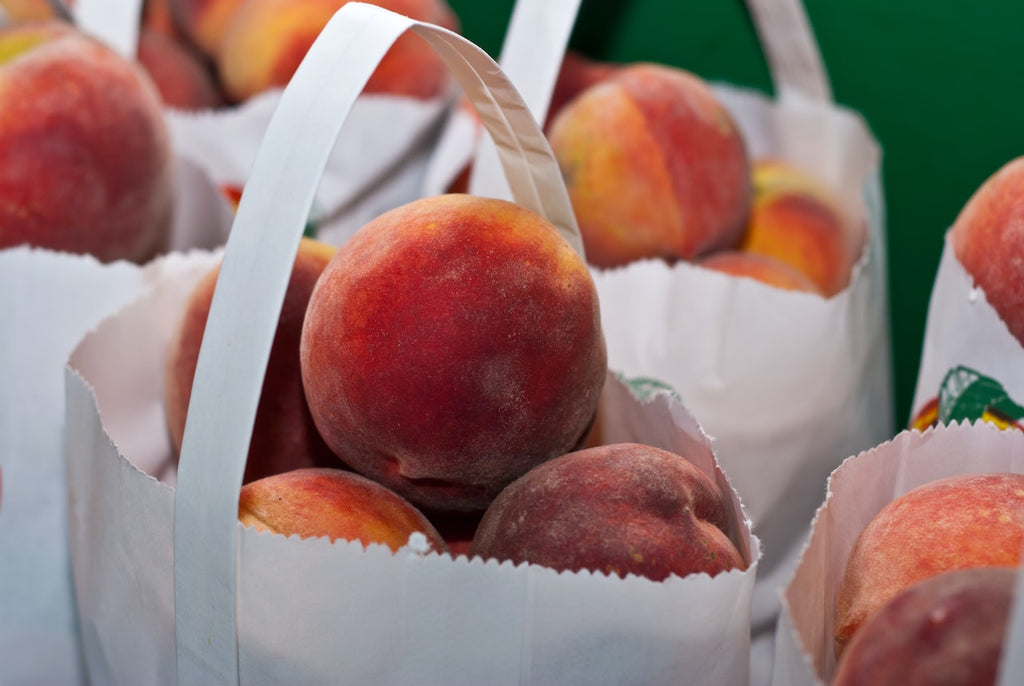
Nutritional Benefits Of Feeding Chickens Peaches
Feeding chickens peaches can offer several nutritional benefits. Here are some potential benefits of including peaches in a chicken's diet:
- Vitamins: Peaches are a good source of essential vitamins, including vitamin A and vitamin C. Vitamin A supports healthy vision, immune function, and reproductive health in chickens. Vitamin C is an antioxidant that aids in the absorption of iron and helps boost the immune system.
- Fiber: Peaches contain dietary fiber, which is beneficial for a chicken's digestive health. Fiber helps regulate bowel movements, prevents constipation, and supports overall gut health.
- Hydration: Peaches have a high water content, which can help keep chickens hydrated, especially during hot weather. Proper hydration is important for maintaining overall health and preventing issues like dehydration or heat stress.
- Antioxidants: Peaches contain antioxidants, such as phenolic compounds and flavonoids, which can help protect chickens' cells from oxidative damage caused by free radicals. Antioxidants play a role in maintaining overall health and may have beneficial effects on the immune system.
- Palatability: Adding peaches to a chicken's diet can provide variety and make their meals more interesting. This can encourage chickens to eat a diverse range of foods, which can contribute to their overall nutritional well-being.
Remember, while peaches offer nutritional benefits, they should be given in moderation and as part of a balanced diet. It's important to provide a variety of other appropriate foods, including grains, seeds, vegetables, and protein sources, to ensure chickens receive a complete and balanced diet.
Risk Of Feeding Chickens Peaches
While peaches can provide nutritional benefits to chickens, there are also some risks associated with feeding them peaches. Here are a few considerations:
- Overconsumption: Chickens should not have excessive amounts of fruit, including peaches, in their diet. Too much fruit can lead to an imbalance in their nutritional intake, as fruit is generally higher in sugar compared to their typical diet. Excessive sugar intake can potentially cause digestive issues, obesity, or other health problems in chickens.
- Pits and Seeds: The pits and seeds of peaches contain compounds, such as amygdalin, that can release cyanide when metabolized. While the amount of cyanide in peach pits is generally small, it's still advisable to remove the pits and seeds before feeding peaches to chickens to avoid any potential risks.
- Allergies and Digestive Sensitivities: Some chickens may have allergies or sensitivities to certain foods, including peaches. When introducing new foods, it's important to monitor the chickens for any signs of adverse reactions, such as diarrhea, vomiting, or decreased appetite. If any negative symptoms occur, it's best to discontinue feeding peaches or consult a veterinarian.
- Pesticide Residues: If the peaches are not organically grown or if pesticides are used on the trees, there is a risk of pesticide residues on the fruit. These residues can be harmful to chickens if ingested. It's advisable to wash the peaches thoroughly or consider using organic peaches to reduce the risk of pesticide exposure.
Always remember to introduce new foods gradually into a chicken's diet and observe how they respond. If you have any concerns or questions about feeding peaches or any other specific food to your chickens, consulting with a poultry veterinarian is recommended.
Can Chicks Eat Peaches
Chicks should not be fed peaches or any other fruits until they are older. When chicks are very young, their digestive systems are still developing, and they require a specialized diet that consists primarily of a balanced chick starter feed specifically formulated for their nutritional needs.
Peaches, along with other fruits, contain higher levels of sugar and may not be suitable for young chicks. Introducing solid foods, including fruits, too early can potentially disrupt their digestive system and lead to health issues.
It's generally recommended to wait until chicks are at least four to six weeks old before introducing treats or supplemental foods into their diet. At that point, you can gradually start offering small amounts of fruits as occasional treats. Remember to cut fruits into small, manageable pieces and monitor the chicks' response to ensure they tolerate the new food well.
How To Feed Chicken Peaches
When feeding chickens peaches, it's important to follow these guidelines:
- Preparation: Ensure the peaches are ripe, fresh, and free from mold or rot. Wash the peaches thoroughly to remove any dirt or pesticide residues, especially if they are not organically grown.
- Remove pits and seeds: Remove the pits and seeds from the peaches before feeding them to chickens. The pits and seeds contain compounds that can be harmful if consumed in large quantities.
- Cut into appropriate sizes: Cut the peaches into small, manageable pieces to make it easier for chickens to eat. This helps prevent choking and makes it more convenient for them to consume.
- Moderation: Feed peaches to chickens in moderation. As treats, peaches should not make up a significant portion of their diet. A small amount of peach as an occasional treat is generally sufficient.
- Introduce gradually: If you are offering peaches to chickens for the first time, start with a small amount and observe their response. Some chickens may have preferences or sensitivities to certain foods, so it's important to monitor their digestion and overall health.
Summary
Yes, chickens can eat peaches in moderation, as they provide nutritional benefits such as vitamins and minerals. However, it's important to remove pits and seeds, cut them into appropriate sizes, and introduce them gradually to avoid any digestive issues. Additionally, peaches should not replace a balanced diet for chickens, and overfeeding should be avoided.

